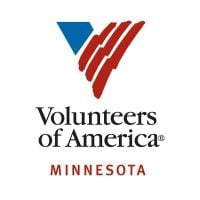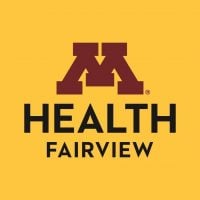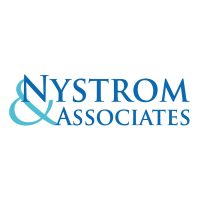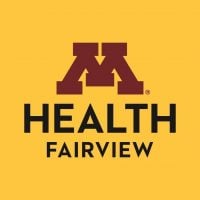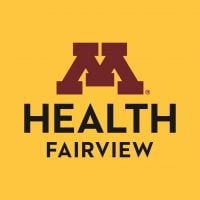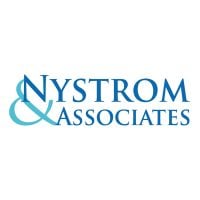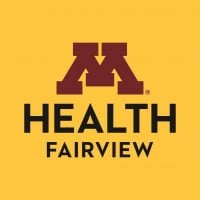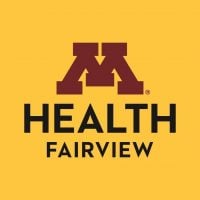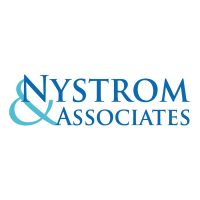Bar None Residential Treatment
Drug Rehab Center in Anoka, Minnesota
Bar None Residential Treatment is a comprehensive addiction treatment facility in Anoka, MN that provides inpatient and residential levels of care, accepts private health insurance and is affiliated with VOA, and delivers evidence-based therapies such as cognitive behavioral therapy, motivational interviewing, family systems therapy, and more.
About Bar None Residential Treatment in Minnesota
Bar None Residential Treatment, located in Anoka, Minnesota, stands as a private rehab facility primarily focusing on mental health treatments. This center is distinctive because of its comprehensive approach to handling both mental health issues and addiction, ensuring a holistic recovery journey for its clients.
Accredited by SAMHSA and CARF, Bar None Residential Treatment demonstrates its commitment to high-quality care and evidence-based treatment programs. This center is not only reputable in the domain of mental health but also extends its specialized services to tackle alcoholism, opioid addiction, drug addiction, and dual diagnosis.
- Specializes in treating a wide range of addictions along with mental health issues, providing a dual-diagnosis treatment model.
- Offers a variety of levels of care including inpatient, residential, and aftercare support, tailored to meet individual needs for comprehensive recovery.
- Accredited by SAMHSA and CARF, ensuring that patients receive the highest quality of care based on rigorous standards.
Bar None Residential Treatment caters specifically to individuals struggling with substance abuse, including alcoholism, opioid addiction, drug addiction, dual diagnosis, and mental health issues. Utilizing innovative treatment methods across different levels of care such as inpatient, residential, and aftercare support, the facility aims to ensure sustained recovery and well-being.
Genders
Ages
Modality
Additional
Accreditations
SAMHSA

CARF
The Commission on Accreditation of Rehabilitation Facilities (CARF) is a non-profit organization that specifically accredits rehab organizations. Founded in 1966, CARF's, mission is to help service providers like rehab facilities maintain high standards of care.
Conditions and Issues Treated
Levels of Care Offered
This center offers a variety of custom treatment tailored to individual recovery. Currently available are Inpatient, Residential, with additional therapies available as listed below.
Inpatient treatment is a form of recovery used in drug rehab. Inpatient recovery offers individual therapy, groups, and family therapy to ensure that the addict has the best recovery possible. A variety of treatments are provided in this type of recovery, depending on what treatment the addict needs at that particular time.
The length of inpatient addiction treatment depends on the addict and their addiction. Inpatient rehabilitation can last anywhere from 30 days to 90 days, depending on how severe the drug abuse is. Inpatient rehab is a costly drug treatment, costing anywhere from $30k- to $60k. However, insurance often offers help in covering these costs.
Residential treatment programs are those that offer housing and meals in addition to substance abuse treatment. Rehab facilities that offer residential treatment allow patients to focus solely on recovery, in an environment totally separate from their lives. Some rehab centers specialize in short-term residential treatment (a few days to a week or two), while others solely provide treatment on a long-term basis (several weeks to months). Some offer both, and tailor treatment to the patient’s individual requirements.
Therapies & Programs
Different people react differently to various treatment options. Some drug rehabilitation centers offer individualized treatment that caters to the specific needs of a drug addict. The best treatment option varies on an individual depending on the type of drug abused, life history, medical condition of the person, social circumstances, and the environment they live in now.
When a person enters drug rehab, they usually have anti-drug associations such as withdrawal symptoms, stress, cravings, etc. The first step of drug rehab is to detoxify the body from any residual substances in it. Drug rehabilitation centers usually employ trained medical professionals to help in this process. Usually, the initial detoxification lasts for five days, where the person is monitored under close supervision.
Couples therapy is a treatment method used to help couples in which at least one member of the couple has a drug addiction. The treatment is designed to help the couple strengthen their relationship to minimize the effects of drug addiction on their lives and promote healthy communication between them.
Couples therapy can be used whether the addicted partner is using drugs or in recovery. It helps the couple create healthy communication and coping skills to minimize the problem-solving abilities of one partner, which can then be directed at solving issues related to their addiction. It also helps couples address problems that may be related to drug addiction. Couples therapy can help couples feel like a team and not feel like their partner is the problem.
Couples therapy is very challenging for both the drug addict and their partner. It requires an intense commitment between the two individuals to participate in the sessions and the homework assigned between sessions.
An additional benefit of couples therapy is that it can help make other types of treatment, such as 12-step programs, more effective.
Family therapy sessions typically involve the addict and their family members. During these sessions, a therapist will work with everyone involved to help them understand addiction and find healthy ways of coping without substance abuse.
Some addicts might feel embarrassed about their substance abuse problems. By encouraging family members to attend these sessions, therapists can show addicts that they’re not alone in dealing with addiction. Therapists can also work with family members to help them understand addiction and learn how to offer support and encouragement to their loved one as they deal with substance abuse issues.
Attending group therapy at Bar None Residential Treatment in , is a useful way for those seeking sobriety to realize they aren’t the only one going through it.
This is when a group of people on different recovery phases get together and talk about what they’re going through, their triggers, successes, and failures. This can include alternative types of therapies too! Group therapy may occur on an outpatient or inpatient basis with groups that have no pre-existing relationships outside the session, unlike support groups where everyone already knows each other beforehand.
Trauma therapy is a form of therapy used to help people process and understand past traumas. This can help struggling addicts, as many people turn to drugs or alcohol to mask the pain of their past. Trauma therapy can be done in several ways, such as through visualization, discussion, and writing down thoughts and feelings. The goal is to help the individual understand why they are having problems coping with certain situations and changing how they think and react to things. This is often done in tandem with other therapies to treat the underlying issues associated with addiction.
The idea behind trauma therapy is that while some people can experience traumatic events and not have lasting psychiatric symptoms, many others will. In these cases, memories get hidden from consciousness but continue to influence how the person processes and copes with things in their life. They may avoid situations that resemble what happened or become suddenly angry or irritated to a situation that reminds them of a past event. With the help of a therapist, people can go back over memories and experiences. This helps them understand why they are having problems coping with certain situations and changing how they think and react to things.
Cognitive Behavioral Therapy is a type of psychotherapy that helps people address the thoughts and behaviors that may have led to their addiction. It also helps change negative thoughts into positive ones and promotes healthy communication between addicts and those around them. CBT is an efficient treatment for individuals suffering from all sorts of addictions.
Cognitive Behavioral Therapy (CBT) focuses on the underlying thoughts and behaviors that caused the problem of addiction in the first place and may cause a relapse. Negative feelings are common in drug abuse disorders, but they can lead to co-occurring disorders if not recognized. CBT involves strategies that help to change the behavior pattern by restructuring negative thoughts into positive ones. It helps to remove these feelings, and it provides long-term benefits. Also, CBT promotes self-awareness, self-control and can be administered as a mono-therapy or as part of combination therapy.
Patient Experience
Experiential Therapy at Bar None Residential Treatment
Experiential therapy is a type of therapeutic approach that focuses on having patients work through problems, issues, or emotions by engaging directly in some real experience. It occurs face-to-face with a therapist who helps these people to explore their feelings first hand. The hope is that when this happens, the patient will feel driven to turn away from their destructive behavior and instead take up positive behaviors or coping mechanisms. Direct experience methods, role play, psychodrama, interpersonal and social learning are a few different forms of experiential therapy.
Payment Options Accepted
For specific insurance or payment methods please contact us.
Is your insurance accepted?
Ask an expert, call (888) 674-0062
VOA Associated Centers
Discover treatment facilities under the same provider.
No items foundLearn More About VOA Centers
Additional Details
Specifics, location, and helpful extra information.
Anoka, Minnesota 55303 Phone Number(763) 753-2500 Meta DetailsUpdated April 15, 2024
Staff Verified
Bar None Residential Treatment Patient Reviews
There are no reviews yet. Be the first one to write one.
Anoka, Minnesota Addiction Information
Minnesota is fighting an opioid epidemic that is leaving hundreds of its residents dead each year. Both prescription opioids and illicit opioids are widely abused in the Land of 10,000 Lakes. Heroin continues to be one of the most commonly abused drugs in the state, if not the most common illicit drug. Over 10% of all treatment admissions in Minnesota list heroin as their drug of choice.
The drug addiction problem in Anoka, MN, is relatively inadequate. According to recent statistics, approximately 9% of the population in Anoka, MN, abuse drugs, while about 15% of the people in Anoka, MN, are alcoholics. Anoka's most commonly abused drugs include heroin, methamphetamine, and prescription drugs. Most drug treatment facilities in Anoka offer inpatient and outpatient care so that people can receive the level of care they need.
Treatment in Nearby Cities
- Onamia, MN (49.8 mi.)
- Faribault, MN (75.1 mi.)
- Park Rapids, MN (133.5 mi.)
- Navarre, MN (32.4 mi.)
- Stillwater, MN (35.9 mi.)
Centers near Bar None Residential Treatment
The facility name, logo and brand are the property and registered trademarks of Bar None Residential Treatment, and are being used for identification and informational purposes only. Use of these names, logos and brands shall not imply endorsement. RehabNow.org is not affiliated with or sponsored by Bar None Residential Treatment.
